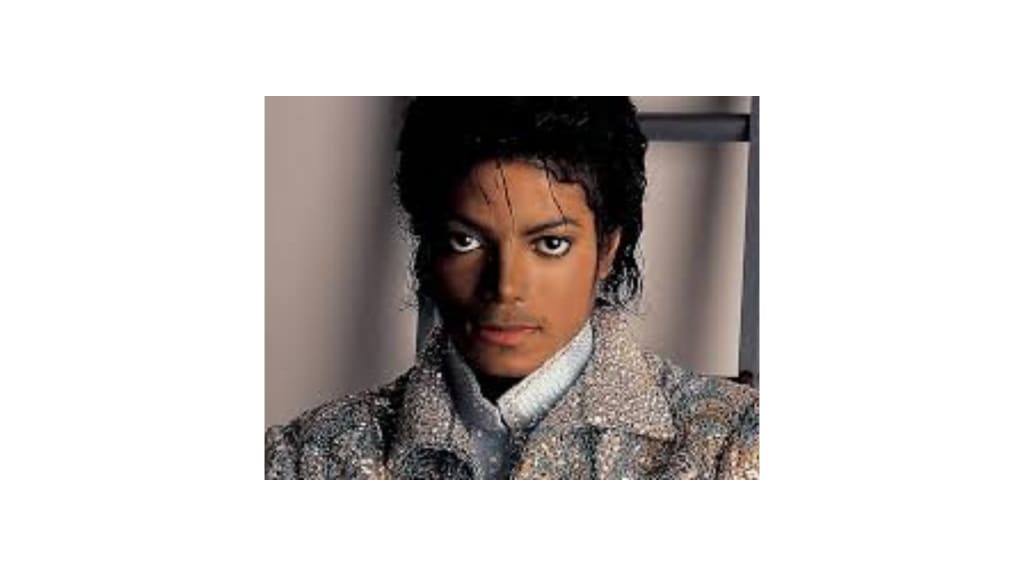Michael Jackson's Death Story - How Did He Really Die?
How Did He Really Die?

June 25, 2009 is the day show business lost its reigning king and the world lost one of the most famous people of all time - the King of Pop, Rock and Soul, Michael Jackson. In 2009, he was only 50 years old and was eagerly waiting for his young children Prince, Paris and Blanket to finally see their father on stage. At that time, Michael was working on the comeback series "This is It", which would have been a real sensation in show business. The news of Michael Jackson's death was a complete shock to everyone. But what happened that day? If you look at Wikipedia now, you'll see that the official cause of death was cardiac arrest due to acute Propofol and benzodiazepine poisoning.
Looking at the lavish lifestyle of Michael Jackson, it's hard to believe that the Greatest Entertainer of all time spent most of his life in pain. Why?, in 1984 while shooting a Pepsi commercial Michael Jackson was literally on fire when a firework ignited his hair. That night Michael not only experienced the second and third-degree burns to his scalp and body but he was also introduced to the world of pain medication in plastic surgery. In 1999, right in the middle of the show, Michael Jackson plunged 50 feet to the ground during an aerial platform malfunction. The accident permanently damaged his spine. After the show, MJ collapsed and was rushed to the hospital, where he was again put on some serious painkillers. Ever since then, back pain and pain medication have become essential to his life. Stress and pain would later transform into serious health problems for Michael Jackson. Perhaps his most disturbing one was insomnia. There were times when he didn't sleep for three, four, even five days in a row and the only thing that could put him to sleep was painkillers and sedative drugs. By the end of the 90's MJ had developed strong addiction to Propofol, which essentially is a powerful sedative used by anesthesiologists to sedate patients during surgeries. Michael Jackson was so used to sleeping under propofol, that he even called it his milk as the color of the substance indeed resembles milk. So, in early 2009 Michael signed a lucrative contract with media giant EEG to organize a series of concerts in London. "This Is IT" tour, which should have marked the great return of the Greatest entertainer. The plan was to have the first concert in July of 2009, and have the rehearsal started in late April at the Staples Center in Los Angeles. Because of the time trouble, the preparation for the show quickly became an exhausting and rigorous routine for Michael, who hadn't been performing at full-scale live shows for over ten years. And, suddenly he needed to dance, sing keep up with the groove of the band, strategize with the production crew for hours and hours... five or six days a week. To keep himself sharp and functional Michael needed a good sleep. And to get his back pain right out of his head, he needed more than that. His plan was to go through this tough period with the use of propofol and benzodiazepine. But administering serious sedatives like propofol is not as easy as taking pills. Therefore, Michael has always had a special companion by his side - a medical doctor, who would be willing to assist Michael with this sensitive matter. As part of the deal with AEG, Michael had a request to hire a personal physician to support him during the tour. AEG said sure, and hired Conrad Murray, a doctor who had known Michael long before the rehearsals, and who undoubtedly knew about MJ's nontrivial requirements. So, here's what's been happening almost every night after the rehearsals. From the Staples Center Michael would go back to 100 North Carrollwood, his Los Angeles home, where Dr. Murray would be administering him propofol and other drugs. They even turned one of the bedrooms into a medication room. Every night Dr. Murray was putting Michael into anesthesia at the comfort of his own home, without proper medical equipment which was absolutely crucial for what they were up to. Now, what happened the night when Michael died? Actually, it was just another night nothing special. Dr. Murray induced a small dose of propofol into MJ's body and put him on a drip. Sounds confusing?! In a nutshell, during a propofol anesthesia an anesthesiologist initially administers a small dose to make a patient fall asleep. After that, the doctor needs to be able to maintain the concentration of the sedative in the patient's blood. Otherwise, the sleep won't last long. That shortly after the initial dose Dr. Murray put Michael Jackson on a drip, when a small dose was being continuously delivered to the patient through intravenous equipment. Thus keeping the stable concentration of the sedative in his blood. And here's what went wrong see the reason why a doctor must have proper equipment when administering drugs like propofol is that the reaction of a human body to strong sedatives can be unpredictable, very unpredictable. Apparently, there's mild sedation moderate sedation and deep sedation. While in mild or moderate sedation, a patient's breathing themselves. The brain basically controls the act of breathing. In deep sedation though, the brain is no longer capable of controlling breath and the patient needs to be put on ventilation to keep breathing. The challenging part is that there's a very narrow line between moderate and deep sedation. And propofol is known to be causing deep sedation quite easily. That night Michael's body reacted unusually and he transitioned into deep sedation without any trace, since there was no equipment monitoring his heart rate and pulse, which would have alerted Dr. Murray in time. And it was such a coincidence that Dr. Murray left the medication room for a few minutes right at the time when Michael Jackson basically stopped breathing. In medical terms, he had a respiratory arrest. At this point though, he could still have been saved. Since he stopped breathing, the only thing that he really needed was oxygen. But Dr. Murray wasn't ready to handle this situation. Upon his return, Dr. Murray did notice that something was wrong, but he thought it was cardiac arrest not respiratory arrest. In other words, he thought that Michael was experiencing a heart-related issue. So he started performing CPR, which was absolutely counterproductive to what he should have done. He also did not call 911 immediately, and the qualified help was not in time to save Jackson's life. Later on, Dr. Murray would suggest his own version of what happened that night, claiming that he only gave Michael the initial dose, just to help him fall asleep, and then Michael would put himself on a drip, while Murray was out to make a phone call. The court and jury didn't believe in that story. In our personal opinion, Michael Jackson's condition was known to his close circle of business partners, but no one really wanted to truly help him get off the drugs. At the end of the day, he could have been sent to rehab, if someone cared enough for him. But in the end, it looks like the Michael Jackson who's performing live despite operating on drugs, was more profitable, than the Michael Jackson, who was at rehab fixing his addiction.
About the Creator
Reader insights
Nice work
Very well written. Keep up the good work!
Top insights
Easy to read and follow
Well-structured & engaging content
Excellent storytelling
Original narrative & well developed characters
Expert insights and opinions
Arguments were carefully researched and presented
Eye opening
Niche topic & fresh perspectives





Comments (1)
Did he die? and how? I guess everyone has ever thought about it, after all, everyone knew him. Very interesting topic, well done!